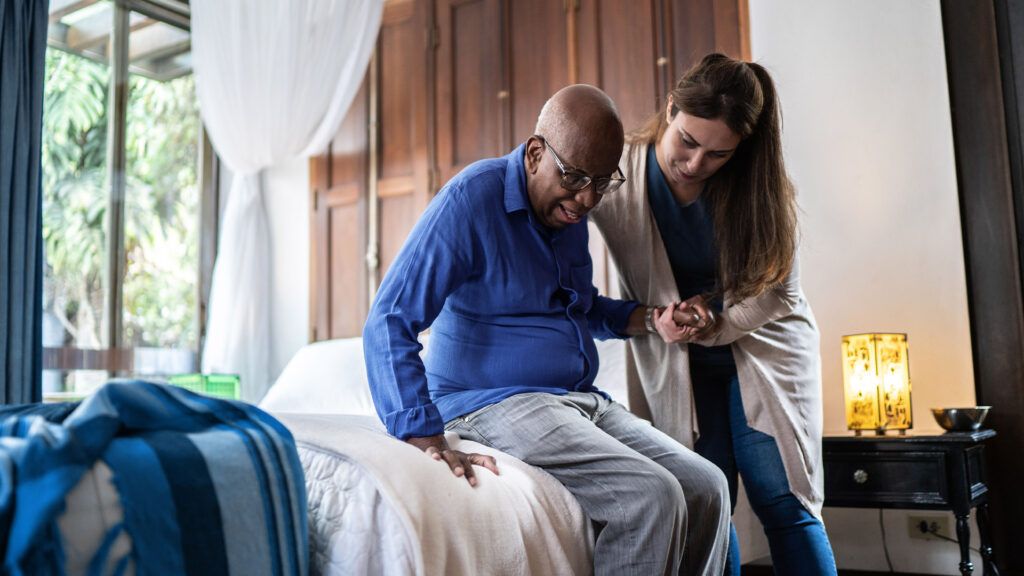A stroke involves a disruption in the blood supply to the brain. This event can cause damage to the brain, causing physical effects, such as an overactive bladder.
During a stroke, small particles, such as blood clots,
Sometimes, the damage
This condition may resolve quickly or can last months or years.
This article will take an in-depth look at an overactive bladder after a stroke. Keep reading to learn about how a stroke can affect the bladder, treatment options, and more.

A stroke can cause damage to brain tissue. This damage
Urinary incontinence (UI) is common in people who experience a stroke. Researchers estimate that up to 80% of these stroke survivors develop UI. People with UI cannot control their bladder function.
In addition to UI, a stroke can lead to an overactive bladder. People with an overactive bladder may leak urine after suddenly feeling a strong need to urinate.
A 2017 study suggests
Sensors inside the bladder wall send information to the brain about how full the bladder is. This helps the brain recognize when it is time to empty the bladder.
A stroke may damage the parts of the brain that receive signals from the sensors within the bladder. Sometimes, this can lead to an overactive bladder.
The symptoms of overactive bladder may vary from person to person. Some of the most common symptoms include:
- urinating at least eight times during the day
- urinating at least twice during the night
- leaking urine after feeling a sudden need to empty the bladder
- sudden feelings of needing to empty the bladder
People with an overactive bladder may find it difficult to sleep well. This condition may also have a negative effect on a person’s professional or social life.
Treatment for an overactive bladder may involve medications, physical therapy, and other approaches.
A doctor
Pelvic floor exercises, such as Kegel exercises, pelvic floor electrical stimulation, and vaginal weight training, can also help reduce the symptoms of an overactive bladder.
Treatments involving medication or other approaches may include:
- antimuscarinics
- beta-3 agonists
- bladder botox
- nerve stimulation
A small 2021 study also examined the use of electroacupuncture for treating an overactive bladder after a stroke. The treatment improved overactive bladder symptoms for some participants. Future studies may shed more light on the effectiveness of this and other types of acupuncture.
In addition to medical treatment, there are many steps people with an overactive bladder can take to help manage their condition.
These may include avoiding certain beverages or foods that can cause bladder irritation, such as:
It may also be helpful to keep a written record of bathroom trips. Keeping a record can help people identify what food or drink worsens their symptoms.
Some people with an overactive bladder may benefit from following a bathroom schedule. Going to the bathroom at the same time each day can help with bladder control.
To learn more about management tips for an overactive bladder, people should speak with a doctor. A medical professional can recommend management strategies for each person’s unique needs.
The following are answers to some questions people frequently ask about overactive bladder and stroke.
How long does urinary incontinence last after a stroke?
The timeline of UI after a stroke varies between individuals. In some people, UI resolves quickly on its own. In other people, it may not resolve for months or years.
One study examined UI in stroke survivors. About
Can you regain bladder control after a stroke?
It is possible to regain bladder control after a stroke. Some people regain full bladder control soon after a stroke. For others, there is a wide range of treatment options that can help them recover bladder control.
Can an overactive bladder be neurological?
An overactive bladder
Certain medications doctors prescribe after a stroke can also have a negative effect on bladder control.
A stroke blocks the blood supply to the brain and can cause damage.
In some people, this can lead to bladder conditions, such as urinary incontinence and overactive bladder. Some people may recover from an overactive bladder quickly following a stroke. Others may need additional treatment, such as medications, physical therapy, or other treatments to regain bladder control.
Many people experience loss of bladder control after a stroke. With medical treatment and at-home management strategies, it is possible to manage an overactive bladder and continue to enjoy a full and rewarding life.
